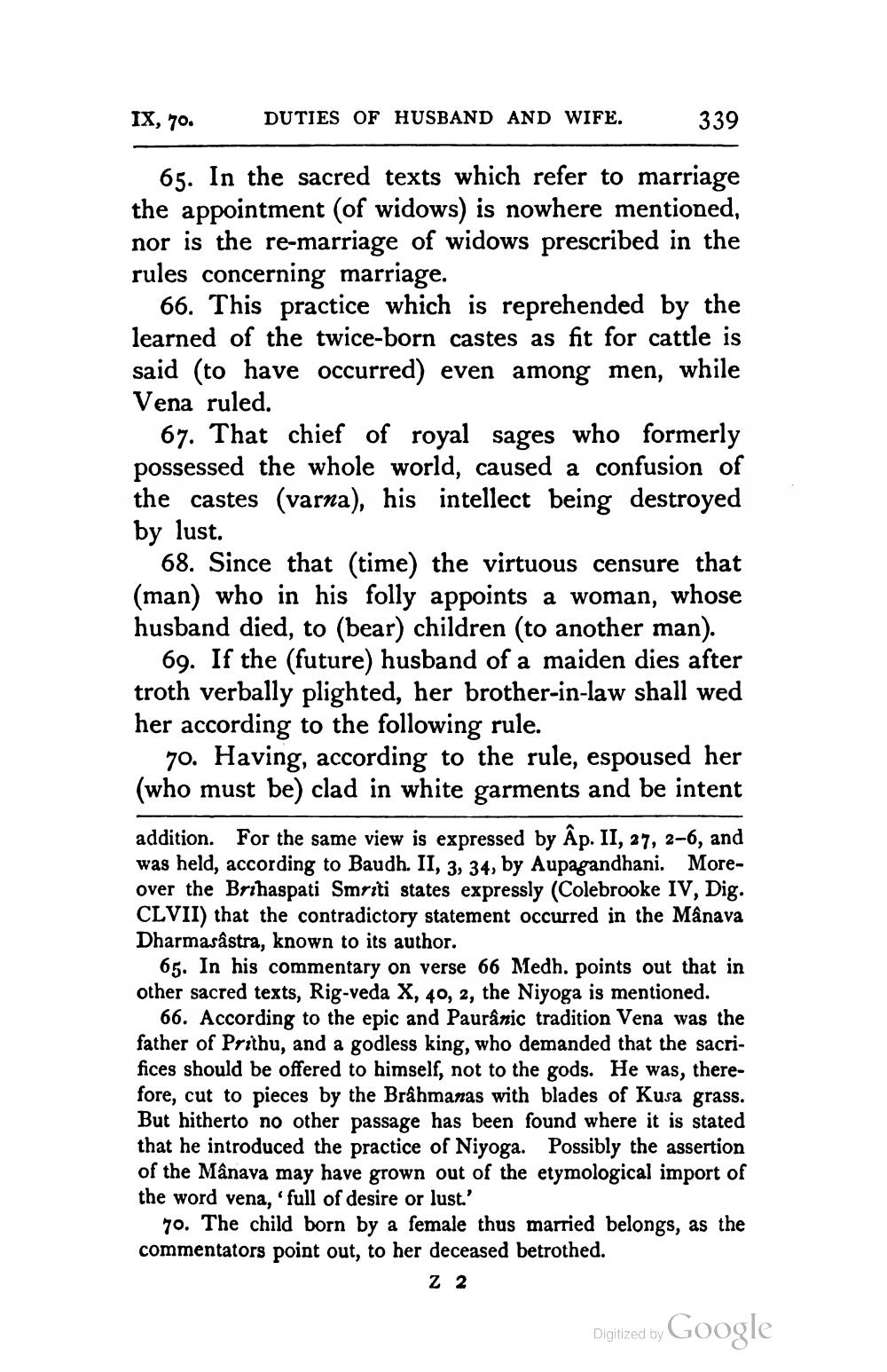________________
IX, 70.
65. In the sacred texts which refer to marriage the appointment (of widows) is nowhere mentioned, nor is the re-marriage of widows prescribed in the rules concerning marriage.
66. This practice which is reprehended by the learned of the twice-born castes as fit for cattle is said (to have occurred) even among men, while Vena ruled.
DUTIES OF HUSBAND AND WIFE.
339
67. That chief of royal sages who formerly possessed the whole world, caused a confusion of the castes (varna), his intellect being destroyed by lust.
68. Since that (time) the virtuous censure that (man) who in his folly appoints a woman, whose husband died, to (bear) children (to another man).
69. If the (future) husband of a maiden dies after troth verbally plighted, her brother-in-law shall wed her according to the following rule.
70. Having, according to the rule, espoused her (who must be) clad in white garments and be intent addition. For the same view is expressed by Âp. II, 27, 2-6, and was held, according to Baudh. II, 3, 34, by Aupagandhani. Moreover the Brihaspati Smriti states expressly (Colebrooke IV, Dig. CLVII) that the contradictory statement occurred in the Mânava Dharmasastra, known to its author.
65. In his commentary on verse 66 Medh. points out that in other sacred texts, Rig-veda X, 40, 2, the Niyoga is mentioned.
66. According to the epic and Paurâzic tradition Vena was the father of Prithu, and a godless king, who demanded that the sacrifices should be offered to himself, not to the gods. He was, therefore, cut to pieces by the Brahmanas with blades of Kusa grass. But hitherto no other passage has been found where it is stated that he introduced the practice of Niyoga. of the Mânava may have grown out of the etymological import of the word vena, 'full of desire or lust.'
Possibly the assertion
70. The child born by a female thus married belongs, as the commentators point out, to her deceased betrothed.
Z 2
Digitized by Google




